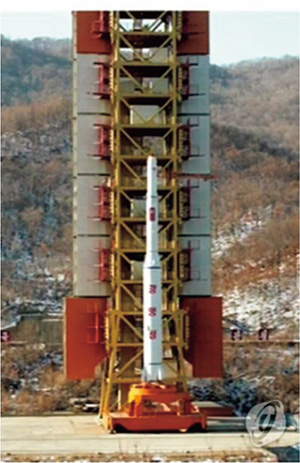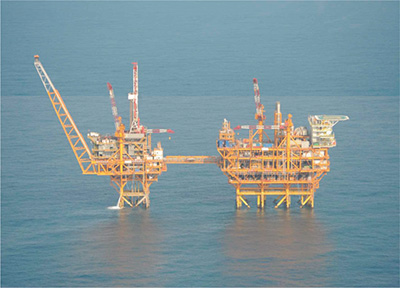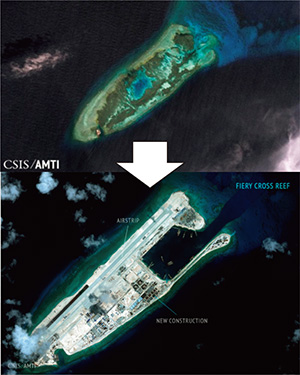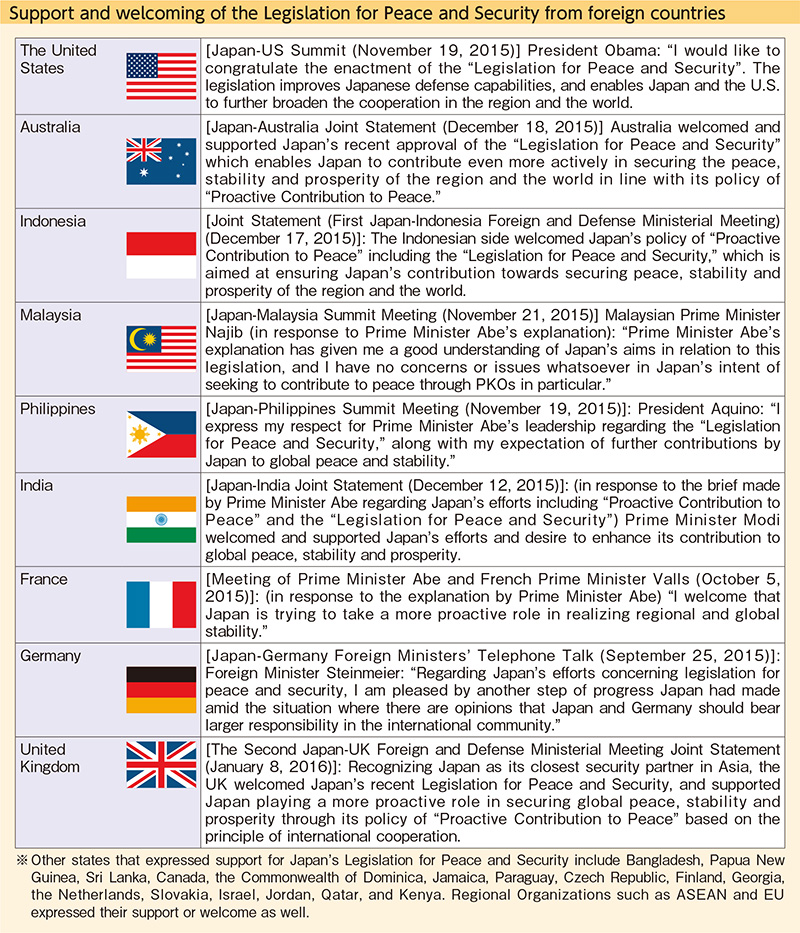Diplomatic Bluebook 2016
Chapter 3
Japan’s Foreign Policy to Promote National and Worldwide Interests
1.National Security Initiatives
A. “Proactive Contribution to Peace” Based on the Principle of International Cooperation
The security environment surrounding Japan is becoming increasingly severe. North Korea conducted the fourth nuclear test on January 6, 2016, and launched a ballistic missile on February 7, which it purports to be a “satellite”. North Korea is pursuing the development and deployment of ballistic missiles as well as nuclear development. China has been expanding its military capabilities, and increasing its national defense budgets by approximately 44 times over the past 28 years lacking transparency as it has not provided any detailed breakdown. China has been also continuing its attempts to change the status quo by force or coercion at sea and in the air in the East and South China Seas, based on its own claims, which are inconsistent with the existing international order. These actions are matters of concern of the region and the international community. (see 1-1 (2), 2-1-2 (1), 2-1-6 and 3-1-3 (4)). Furthermore, there are widespread and diversified global security issues, including the proliferation of weapons of mass destruction, the growing threat of international terrorism, and emerging issues in new domains such as cyberspace and outer space. In such a security environment, any threats, wherever in the world they occur, could directly affect the security of Japan. In today’s world, no nation can any longer maintain its own security alone. A peaceful and stable international environment is essential to Japan’s prosperity.
Since the end of World War II, Japan has consistently followed the path of a peace-loving nation under the Constitution of Japan, and has proactively contributed to the peace and prosperity of the international community through cooperation with the international community as well as other international organizations including the United Nations. The course that Japan has taken as a peace-loving nation has garnered appreciation and respect from the international community. The international community expects Japan to play a more proactive role for the peace and stability in the world in a way commensurate with its national capabilities.
Continuing to adhere to the course that it has taken to date as a peace-loving nation, Japan will advance vibrant diplomacy under the policy of “Proactive Contribution to Peace” based on the principle of international cooperation, and will contribute even more proactively to the peace and security of the international community to meet the request from the international community.
B. Enactment of the “Legislation for Peace and Security”
In order to adapt to the changes in the security environment surrounding Japan and to secure the lives and peaceful livelihood of its people, it is important to advance vibrant diplomacy to create a stable and predictable international environment. On that basis, it was necessary to develop a domestic legislation to enable seamless responses to any situations, and to contribute even more proactively to the peace and stability of the international community under the policy of “Proactive Contribution to Peace” based on the principle of international cooperation. Against this backdrop, the draft of the “Legislation for Peace and Security” was submitted to the Diet by the government in May. The bills were approved on September 19, after more than 200 hours in total at the Lower and Upper House of the Diet, gaining support not only from the ruling coalition but also from three opposition parties (The Assembly to Energize Japan, The Party for Future Generations and New Renaissance Party). (see Special Feature in Chapter 1).
 The ballistic missile, launched by North Korea on February 7, 2016 which it purports to be a “satellite”.
The ballistic missile, launched by North Korea on February 7, 2016 which it purports to be a “satellite”. Maritime structures confirmed to have been installed near the geographical equidistance line between Japan and China.
Maritime structures confirmed to have been installed near the geographical equidistance line between Japan and China. Undergoing land reclamation at Fiery Cross Reef in the South China Sea.
Undergoing land reclamation at Fiery Cross Reef in the South China Sea.Top: January 22, 2006
Bottom: September 3, 2015

This legislation aims to solidify Japan’s orientation as a peace-loving nation, including adherence to its exclusively defense-oriented policy. The legislation strengthens the Japan-U.S. Alliance and enhances the deterrence of Japan, and thus enables Japan to prevent conflicts beforehand. Also, the legislation enables Japan to further contribute to the international community.
The Government of Japan has taken advantage of a variety of opportunities to thoroughly explain the “Legislation for Peace and Security” to foreign countries. Not only the U.S. but also a number of countries including Australia, ASEAN and European countries have expressed their understanding and support for this legislation. This is a confirmation that the “Legislation for Peace and Security” is a legislation that contributes to the peace and security of the world.
C. Territorial Integrity
Maintaining territorial integrity is a fundamental responsibility of a state. Japan’s policy to resolutely protect its land, sea and airspace remains unchanged. Japan will continue to respond firmly but in a calm manner. At the same time, the Government of Japan engages in proactive efforts to promote awareness of Japan’s position on territorial integrity among the international community, making use of the contacts and knowledge of our diplomatic missions overseas.
